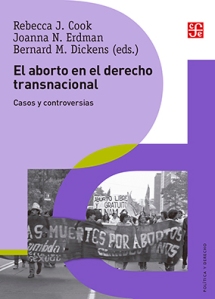Many thanks to Professors Claire Pierson of the University of Liverpool, Kathryn McNeilly of Queen’s University Belfast and Fiona Bloomer of Ulster University, founding members of the Reproductive Health Law and Policy Advisory Group, online here, who kindly commented on the results of CEDAW’s inquiry into Northern Ireland’s abortion laws, based on their 9-page Briefing Document:
Reproductive Health Law and Policy Advisory Group, Briefing Document: Report of the inquiry concerning the United Kingdom of Great Britain and Northern Ireland under article 8 of the Optional Protocol to the Convention on the Elimination of All Forms of Discrimination against Women, April 2018.
Briefing on CEDAW’s Northern Ireland inquiry and UK response – (9 pages).
From the late twentieth century onwards, human rights emerged as a significant tool, drawing attention to reproductive health provision for women. In Northern Ireland, however, it is only recently that human rights have stimulated meaningful discussion on local abortion access. The UN CEDAW Committee has become the latest body to engage rights in this way.
In early 2018, the CEDAW Committee completed an Optional Protocol inquiry into Northern Ireland’s abortion laws. CEDAW’s report, online here, found the United Kingdom in violation of several articles of the Convention through maintenance of a criminal framework permitting abortion in Northern Ireland only in circumstances of threat to life or serious and long-term threat to health. These violations were found to be grave and systematic.
The inquiry was undertaken following a 2010 submission by the Family Planning Association for Northern Ireland (FPA), Alliance for Choice and the Northern Ireland Women’s European Platform (NIWEP). In 2014, the UK submitted written observations on the submission to CEDAW. These denied that violation of rights had occurred and outlined that legislative change was not envisaged. Upon reviewing the UK response and material received by the FPA, Alliance for Choice and NIWEP, CEDAW determined the allegations were reliable and assigned two delegates to conduct an inquiry in 2016.
In addition to the impact of the region’s restrictive criminal law on women’s health and equality, the report highlights concerns with wider access to reproductive and sexual health services, including: post-abortion care, harassment at reproductive health clinics, and a lack of adequate sexual health education. It particularly notes the disproportionate impact of restrictive abortion access on rural and poorer women.
The Committee made 13 recommendations, including repeal of the current criminal law (sections 58 and 59 of the Offences against the Person Act 1861) and the creation of legislation to allow for abortion under particular grounds. The UK Government has issued a response outlining that it does not accept that women in Northern Ireland have been subject to grave and systematic violations of rights under the Convention.
A separate legal challenge to the compatibility of Northern Ireland’s law with domestic human rights commitments is being heard by the UK Supreme Court. Pressure is mounting for the UK to seriously consider the rights implications of abortion law in this region.
RELEVANT LINKS:
CEDAW’s Report, see: Committee on the Elimination of Discrimination against Women,Report of the inquiry concerning the United Kingdom of Great Britain and Northern Ireland under article 8 of the Optional Protocol to the Convention on the Elimination of All Forms of Discrimination against Women, U.N. Doc, CEDAW/C/OP.8/GBR/1, February 23, 2018. CEDAW’s report on abortion law in Northern Ireland, 19 pages
Observations of the Government of the United Kingdom of Great Britain and Northern Ireland on the report of the inquiry concerning United Kingdom of Great Britain and Northern Ireland of the Committee on the Elimination of Discrimination against Women under article 8 of the Optional Protocol to the Convention on the Elimination of All Forms of Discrimination against Women* United Kingdom response, 7 pages
The Reproductive Health Law and Policy Advisory Group, discussed above, has issued a a Briefing Document summarizing both the CEDAW report and the UK government’s response 9-page briefing.




